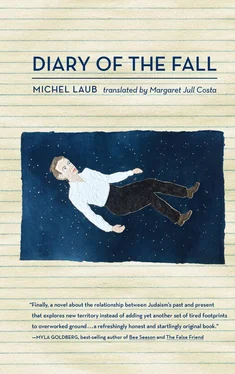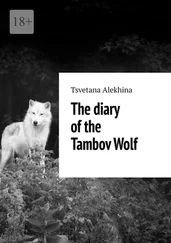15.
Family — group of people who share the house with the man and in doing so crown his desire for continuity and a loving, giving relationship, confirming the good luck he has always enjoyed in life. When living with him the other family members take care that their ideas or attitudes are never incompatible with his, this includes the observance of the most rigorous hygiene procedures in the upkeep of the house and in items such as food and clothing, which includes taking care over foodstuffs and the hygienic treatment of clothing using for the purpose products such as soap and fabric conditioner as well as detergent for the household china and disinfectant for the floor, using a mop and various cloths to remove dust. The family members should also observe the rules of communal living insofar as it affects the man’s personality, respecting him in his moments of strength and weakness and ensuring that his wishes are respected whenever he chooses to remain alone in his study. The family never disturbs him when he is alone in his study. The family must respect his right, which he can exercise on any day and at any hour and without permission or prior warning, to remain for as long as he likes alone in his study .
16.
My grandfather lost a brother in Auschwitz, and another brother in Auschwitz, and a third brother in Auschwitz, and his father and his mother in Auschwitz, and his girlfriend of the time in Auschwitz, and at least one cousin and one aunt in Auschwitz, and who knows how many friends in Auschwitz, how many neighbors, how many work colleagues, how many people he would have been quite close to had he not been the only one to survive and set off on a boat for Brazil and spend the rest of his life without ever mentioning any of their names.
17.
At fourteen I sat down on the bed with the bottle of whisky I’d taken from the cupboard knowing that my grandfather had never stopped thinking about Auschwitz. My grandfather went out to buy bread and the newspaper: Auschwitz. My grandfather said good morning to my grandmother: Auschwitz. My grandfather shut himself up in his study knowing that my father was on the other side of the door, his son gaining his adult teeth and growing slightly taller, and you could be there with him when he uses a new word and ends a sentence in a different way, and laughs at something you weren’t expecting him to understand at his age, and looks at you and you see his face when he’s eight and ten and fourteen, but you’re not there because time has sped past and you’ve never known a single moment when you did anything but think about all those names, about each and every one of the people who were with you in the train and in the hut and at the work camp and at every moment during the time you spent in Auschwitz, apart from the day when you were freed.
18.
Would it make any difference if I were to explain how each and every one of my grandfather’s relatives died? Would anyone be particularly moved if his brother, another brother, a third brother, his father and mother, his girlfriend and at least one cousin and one aunt, and who knows how many friends and neighbors and work colleagues and people he was quite close to, if each and every one of them had suffered a more or less natural death in Auschwitz, in the hospital or in the work camps, or if they had been sent to the gas chamber, been given a hanger for their clothes and, while they waited for what they thought would be a hot shower, listened to the music that the guards ordered to be played, and meanwhile the pellets of hydrogen cyanide were exposed to the air to release a gas, and that gas was breathed in, it entered the bloodstream, and some people were in such agony they hurled themselves against the walls in despair, and this lasted until all of them finally fell and were dragged outside and placed on an operating table where the bodies were sliced open, the fat cut out, the teeth extracted, the eyes removed, and each and every organ placed in separate receptacles, liver, kidney, pancreas, stomach, lungs, heart, so that all that remained was the carcass and the bones, and the carcass and the bones were thrown into pits, a million and a half holes dug and filled with skeletons that had once been nameless adults weighing thirty kilos?
19.
Or if my grandfather’s brother, another brother and a third brother and his father and mother, and his girlfriend, and at least one cousin and one aunt, and who knows how many friends and neighbors and work colleagues and people he was quite close to, if each of them had been used for the scientific experiments they say were carried out in Auschwitz, deliberate exposure to chlorine gas or mustard gas, deliberate infection with hepatitis and malaria, induced hypothermia in a tank of freezing water with a probe stuck up their rectum, a doctor who injected ink to see if the patient’s eyes would change color, a doctor who sewed two twins together, a doctor who sewed up a woman’s belly with a cat inside, a group of twenty-three doctors who repeatedly raped a woman whose eyes had been injected with coloring and whose bloodstream had been infected with malaria and hepatitis and tetanus, a woman who weighed only thirty kilos, who had previously been immersed in a tank of water and sulfuric acid at freezing temperatures with a probe stuck up her rectum and a live cat sewn inside her belly, her teeth extracted so that she couldn’t bite the doctors, her fat removed to be turned into soap, her organs stored for future use, liver, kidney, pancreas, stomach, lungs, heart, appendix, trachea, muscles, tendons, ganglia, nails, hair, skin, gums, her bones thrown into a pit with another million and a half skeletons who were once adults who had been repeatedly raped and dissected and given electric shocks and doused in kerosene ready to be thrown on the fire beneath the Auschwitz sky?
20.
Would it make any difference if the things I’m describing are still true more than half a century after Auschwitz, when no one can bear to hear about it anymore, when even to me it seems old-fashioned to write about it, or are those things of importance to me only because of the implications they had for the lives of all those around me?
21.
I’m forty now and, two years ago, I got drunk and slept on a park bench on the day I found out about my father’s Alzheimer’s. I didn’t want my third wife to see me in that state and ask questions because then
the only way of escaping another quarrel and possibly the final act of my third marriage would be to tell her about my visit to the doctor that afternoon, and give her the results of my father’s tests, and allow her to see my reaction when I spoke about the diagnosis, and perhaps tell her everything I knew about my father and everything I knew about my grandfather and, consequently, everything I knew about me.
22.
My grandfather died on a Sunday, at around seven o’clock in the morning, when all the doctors are at home and the hospital emergency services are in the hands of interns or duty doctors on the red-eye shift. On a Sunday it’s harder to deal with the practical side of any death: the bureaucracy involved in getting the body released, telling all your friends, contacting the cemetery, getting a death notice printed in the newspaper.
23.
I don’t know if my father went to the funeral. I don’t know how long it took him to make the connection between my grandfather’s death and Auschwitz, if he did so on that very day, at that very moment, or if this only became clear when he read my grandfather’s notebooks, and there would inevitably have been a delay between their discovery and the delivery of the translation that my father commissioned without telling my grandmother. I don’t know who did the translation, I don’t know how my father paid them, I don’t know if he asked the translator to keep quiet about it, if he made it clear to the translator that he or she should make no comment on what the notebooks contained, because up until then my father had no idea what my grandfather had written in those sixteen volumes without ever once mentioning the relatives he saw die, and it’s possible that he may have seen each and every one of them die, the last breath, the wide, lifeless eyes of his brother, another brother, a third brother, of his father and mother, of his girlfriend and his cousin and his aunt and who knows how many friends and neighbors and work colleagues and people he was quite close to, my father making it clear to the translator that he didn’t want him to make any comment on any such scenes because none could justify the scene of my grandfather lying dead at seven o’clock on a Sunday morning.
Читать дальше












